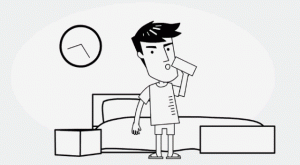
People can live for about 3 weeks without food, but can only survive for about 3 days without water. The importance of “water” to the human body is self-evident.
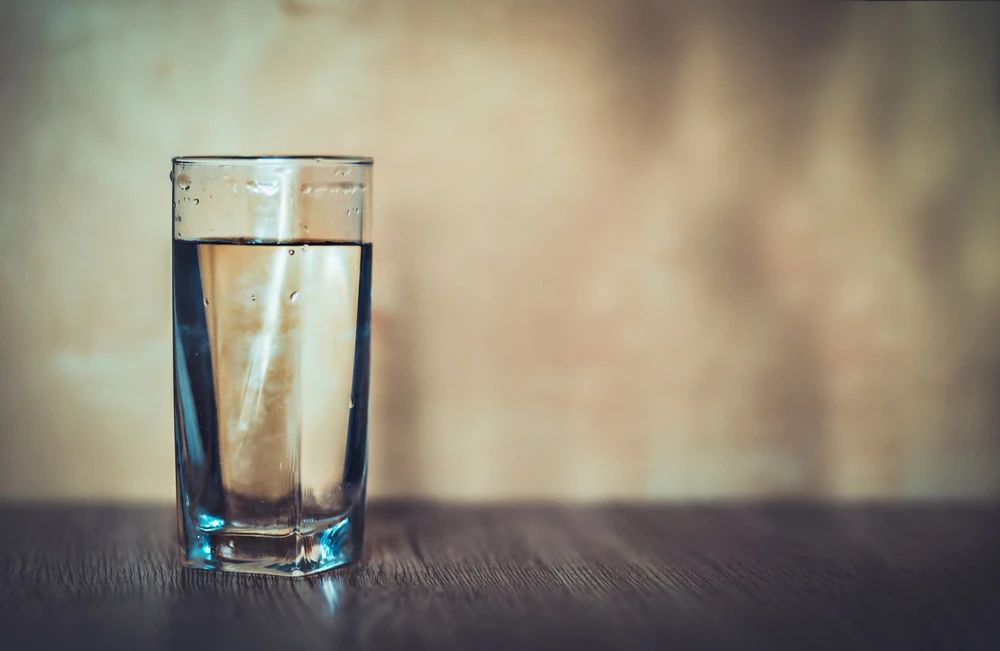
Have you ever felt that you rarely feel “thirsty”, but you can’t help but want to drink water at night before going to bed.
Why do people always feel thirsty before going to bed?
A study published in the top international scientific journal Nature found that the phenomenon of thirst before going to bed comes from the stimulation of nerves by the brain’s biological clock.
The authors are 3 researchers from McGill University in Canada. The study focused on rodents and explored the relationship between the brain’s biological clock and thirst before going to bed.

Scientists have observed that rodents drink a lot of water two hours before going to bed. This study found that this behavior is not caused by any physiological factors (such as dehydration).
The researchers found that restricting the water intake of mice two hours before going to bed caused the mice to become significantly dehydrated at the end of sleep. This shows that increasing water intake before going to bed is to prevent dehydration. Studies have shown that drinking water before going to bed can be directly driven by the brain’s biological clock.
Next, the researchers delved into the mechanism that causes thirst. What is certain is that there is a water-needing sensor in the brain, which contains thirst neurons. The researchers wanted to know whether the suprachiasmatic nucleus (SCN), a brain area that regulates circadian rhythms (the biological clock), is related to thirst neurons.
Researchers speculate that vasopressin (a neuropeptide secreted by the suprachiasmatic nucleus) may play a key role in this. To explore whether it stimulated thirst neurons, the researchers used optogenetic technology. The experiment found that vasopressin indeed stimulated thirst neurons.
In general, the study found that if the mice are restricted from drinking water two hours before going to bed, the mice will have obvious symptoms of dehydration during sleep. The brain’s biological clock stimulates the thirst nerves to cause thirst before going to bed. Therefore, drinking water before going to bed is to maintain a stable state of the body during sleep. The researcher said that although the research subjects were rodents, they also provided an explanation for the phenomenon that humans feel thirsty before going to bed.
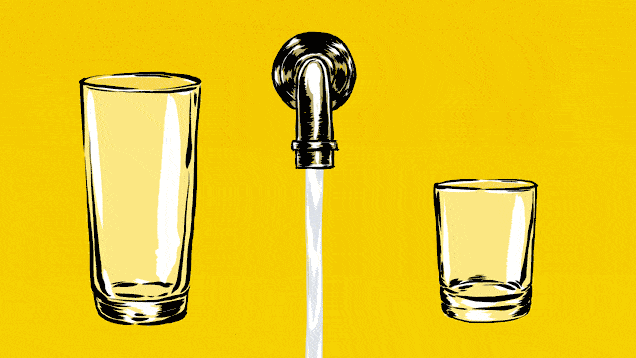
Can I drink water before going to bed?
When a person is asleep, water in the body will be continuously lost through urination, sweating, and breathing, resulting in increased blood viscosity and accumulation of metabolites.
Drinking water in moderation before going to bed can alleviate this phenomenon and reduce the risk of cerebral thrombosis, especially for the elderly. Don’t refuse to drink water before going to bed because of fear of getting up at night.
- The following three types of people should pay more attention to hydrating before going to bed:
Middle-aged and elderly men with prostate hyperplasia. Excessive nocturia and sweating, prone to lack of water in the body, high resistance to cardiovascular and cerebral blood flow, and high risk of cardiovascular and cerebrovascular diseases;
People with underlying diseases such as diabetes, high blood pressure, and hyperlipidemia. Blood is thicker than ordinary people, so you should drink water before going to bed;
People with atrial fibrillation. The atrial contraction function is affected, and the blood tends to stagnate in the atrium, forming thrombus, and the embolus will fall off and run to other places with the blood circulation, causing pulmonary embolism, cerebral embolism, etc., especially the elderly.
The room is dry in winter, you can drink some water if you feel thirsty, but be careful not to drink too much, so as not to wake up too often and affect sleep.
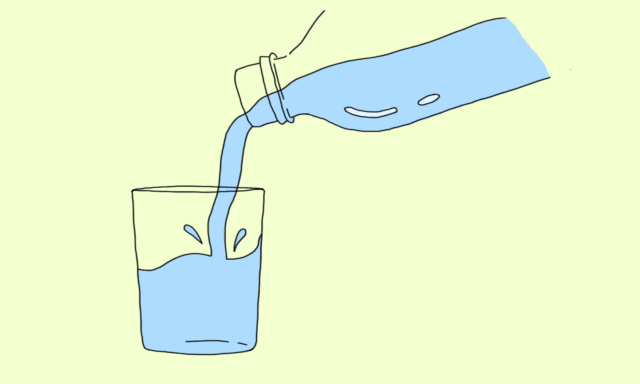
Some people think that drinking water before going to bed will cause edema the next day, but it does not.
Edema usually refers to excessive fluid retention in the skin and subcutaneous tissues. After the water that you drink before going to bed is absorbed by the small intestine, the body’s circulatory system, respiratory system, and urinary system will jointly regulate to maintain the water balance in the body, and will not cause excessive water storage in the tissue fluid.
The real cause of edema is too much sodium intake or too little protein intake, which leads to a drop in blood osmotic pressure and water flow into the tissue fluid; maintaining the same posture for a long time, gravity causes blood reflux obstruction, and tissue edema.
It needs to be reminded that middle-aged and elderly people with heart failure should drink as little water as possible before going to bed, because their heart function is insufficiency and prone to edema in the body. Drinking too much water may aggravate the condition.
Drink water correctly and remember 4 details
When you feel thirsty, the general water loss of adults is about 2% of body weight, and the water loss of children is about 2% to 5%. At this time, body functions begin to be affected.
The lack of water in the human body can also lead to reduced appetite, a sense of depression, dry skin, hoarse voice, general weakness, and life-threatening in severe cases. Experts suggest that you should develop the habit of taking the initiative to drink water, and do not wait until you are thirsty.
Drinking water should follow the principle of “a small amount and many times”: 100-150 ml each time is appropriate, with an interval of about half an hour; drinking water in small mouths is more thirst quenching than drinking water in large mouths, which is beneficial to the body’s absorption.
No.1 There are 4 best times to drink water
After waking up early in the morning, around 10 am, 3 to 4 pm, and before going to bed at night, these are currently recognized as the four “best drinking hours” of the day.
No.2 About 1500ml per day
It is scientifically recommended that adults drink 1500 to 1700 ml of water a day. The average cup is about 200 to 250 ml, which is 7 to 8 glasses of water.
People’s daily drinking water can be appropriately increased according to the following factors:
It is easy to be dry in autumn and winter, and in the heating room in the northern winter, human body water evaporates quickly, so you need to increase the amount of drinking water; in high temperature days, you sweat more and lose water quickly, and you need to add more water.
The diet is salty, when the human body needs to consume more water to discharge excess salt. If you eat foods with more protein, you also need to drink plenty of water.
When a cold and fever occur, the human body loses a lot of water in the form of sweating, so it is necessary to increase the amount of water you drink.
No.3 plain water is the best
It is scientifically recommended that plain boiled water is the most suitable drinking water for human body.
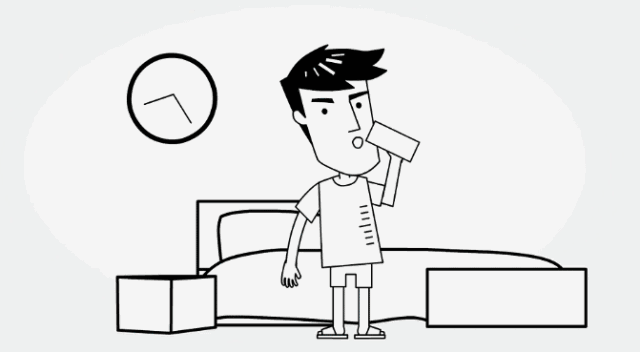
High-sugar and high-calorie beverages require the human body to consume more water to complete the metabolism, and cannot replenish water well.
Functional beverages, strong tea and coffee all contain caffeine, which has a diuretic effect and is not conducive to hydrating the body.
No.4 Special crowds must be particular about drinking water
Different groups of people have different characteristics, so they must be distinguished. Experts especially remind the following categories of people to pay attention to drinking habits.
Child
It is scientifically suggested that for children under 10 years old, the water demand varies with age:
From 6 months to 1 year old, the total daily water intake is 900 ml (milk/food + drinking water). 1~2 years old, total water intake is 1300ml (milk/food+drinking water). 2~3 years old, drink 600~700ml of water. 4~5 years old, 700~800ml. 5~7 years old, 800 ml. 7~10 years old, 1000 ml.
Children’s initiative to drink water in time is generally poor, and parents should remind children to drink water in time.
Breastfeeding women
About 90% of milk is water, and milk secretion is closely related to the daily water intake. Breastfeeding women drink plenty of water while ensuring a balanced nutrition, which is conducive to milk secretion. It is generally recommended that they drink more water than ordinary women, about 2.1 liters per day.
The elderly
The elderly are prone to frequent urination. If they do not drink water frequently, they tend to have thick blood and high blood fat.
The elderly should drink water frequently, and the amount of drinking water should be increased accordingly, which can be judged by the color of urine:
If the urine is light yellow, add 250 ml of water in time. If it is brown, it means that the body lacks water more seriously, so you should drink 500ml of water.
Office worker
Office workers can replenish 200 ml of water in time after they arrive at the office every day, which helps to promote brain activity and focus at work.
In addition, sitting for a long time is easy to gain weight. Drinking 200ml of water half an hour before a meal can help increase satiety and reduce food intake to a certain extent.
Manual workers
Athletes and outdoor workers need to be hydrated in time after a lot of physical activities.
These people can be properly hydrated about half an hour before the physical activity. During the activity, sip a small amount of water. After the activity, do not rush to replenish the water. Replenish the water after a while and drink light salt water appropriately.
In addition, it should be reminded that people with poor kidney and heart and lung functions need to pay special attention to drinking water requirements and adjust drinking habits under the guidance of a doctor.
Comments